Following the Controversial Conversion Law: A Fascinating Tour in the Converts' Community
It started with a Shabbat gathering in a small room of an absorption center and became a real community composed entirely of converts from South America. What brought them here? How do they cope in Israel? And at what ages did an especially elderly pair of converts get married?
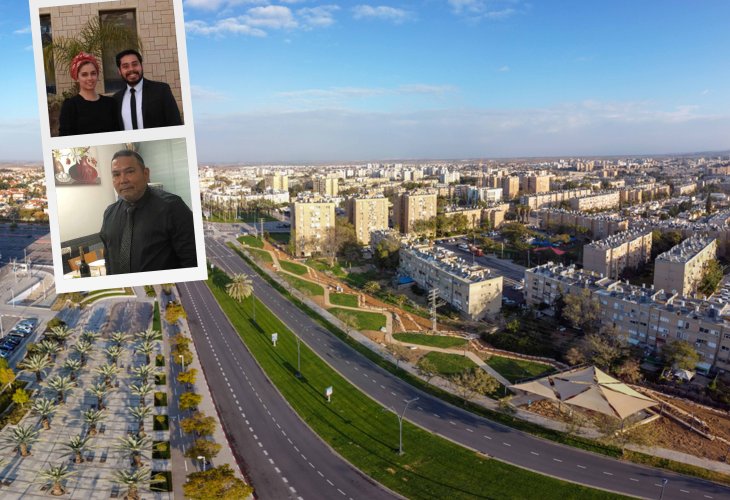 Be'er Sheva (Photo: shutterstock)
Be'er Sheva (Photo: shutterstock)About 20 years ago, a unique community of converts from South America was established in Be'er Sheva. Most of them initially just wanted to reach the nearest absorption center to their home, but discovered a place close by that was much more for them. Other Spanish speakers who had gone through the same process became like a new family for them after each left a whole world behind to embrace the Torah of Israel.
"It started with a group of immigrants from Peru and developed into a community of about 40 families, all immigrants from Latin America, each having gone their unique way," says Rabbi Baruch Gelman, the community's rabbi. "The challenges of cultural differences, language barriers, economic difficulties, and above all, joining a world of Torah and mitzvot, are softened by the togetherness, family-like atmosphere, and the fact that everyone has been through the same path. This warm environment greatly assists the correct progress of the entire conversion process."
A Living Jewish Experience
It all began with one man who decided not only to teach the converts Jewish laws and Torah but also to give them a living Jewish experience. Rabbi Yisrael Wortzman, a native of Brazil, heard that a Spanish-speaking teacher was needed for a group of immigrants from Peru interested in conversion, and he decided to take on the challenge. "As time passed, I realized that it's hard to get by with only the basic study of Torah and laws to truly join the people of Israel," he recounts. "The people I taught needed a place to actually see how to implement what they learned. Each convert had an adoptive family, but I felt we needed to give an additional framework. So we started by organizing a Shabbat reception in one of the classrooms at the absorption center, allowing people to feel the atmosphere of Shabbat. We tried to sing all the hymns in the Carlebach tradition so that the prayer would be as beautiful and meaningful as possible for them, and that's what we still do today."
A year later, Rabbi Wortzman felt that even this wasn't enough. "I wanted the group of converts to have a real synagogue where they could pray as a group. One must understand that when someone in the middle of a conversion process comes to a regular synagogue, they might feel embarrassed. They can't yet be counted in a minyan or be called to the Torah, and there is apprehension that someone might approach them, forcing them to explain their situation. Additionally, Jewish people who grew up in the country know the culture, language, and tradition, while for the convert, everything in the synagogue is entirely new. Therefore, it was important for me that they have their place where they can speak their language, know each stage each person is in their conversion process, and most importantly, feel at home. We found a shelter in the area and a donor who helped renovate and furnish it, including bringing a Torah scroll. We began holding prayers here, and over time added Torah lessons, a joint third meal and more."
Before long, the synagogue became a place that unites community members around life's different events. "At the end of the conversion process, the convert is called to the Torah for the first time, and we celebrate this ascension with great excitement," says the rabbi. "Additionally, couples who converted together remarry, some choosing to hold a real event, often in our synagogue. Brit milahs, bar mitzvahs, and more are also celebrated together, with community members serving as a family for the event's hosts."
From Colombia to Israel
Uziel Kesika arrived in Israel from Peru about 20 years ago. "We had a picture of Jerusalem in our living room, and my father always prayed that at least one of his children would know this city," he recalls. "Despite being Christian, my father never brought a statue or picture of that man into the house, and we also had customs that likely stem from Judaism, such as the prohibition against getting tattoos. Additionally, we knew my mother had Jewish roots, and we already had relatives who immigrated to Israel before us. Following them, we came here too."
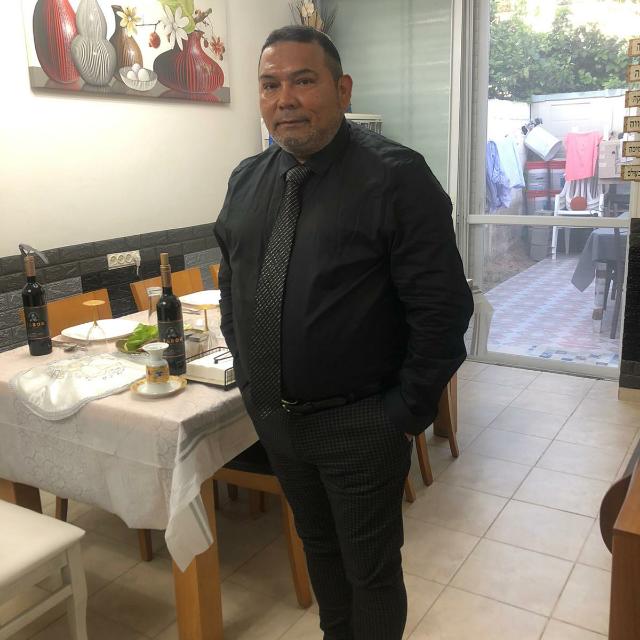 Uziel Kesika
Uziel KesikaThe Kesika family settled in Be'er Sheva, due to proximity to family members. "A few weeks after arriving in the country, I went out with my children for a stroll and heard people singing from one of the buildings," Uziel recalls. "We went in and saw a group of people at a Friday night service. One of them started speaking to me in Spanish and suggested I come again next week. Later, he guided us on how to move towards conversion in the country and assisted us with the process. That's how we found ourselves joining a community we initially didn't know existed."
What does this connection with people from a similar background give you?
"First of all, the fact that we speak the same language and share more or less the same mentality is very significant. It's not easy for a single individual to blend in socially here in the country, especially after changing culture and religion. Furthermore, the support we provide each other, emotionally and financially, strengthens the new arrivals who undergo a period of immense changes in their lives from all aspects."
Daniel and Eliana Kitzberg also joined the southern community about two years ago, after completing their conversion last year. "It started when my parents sent me to a Jewish school, out of some sense of connection to the people of Israel," Daniel recounts. "We always had Jewish markers in the family - like refraining from eating non-kosher food, studying the Bible, and belief in one Hashem. If I could, I would ask my grandfather where these customs came from within our family, but due to his current medical condition, it's no longer possible. Anyway, as a continuation of my connection with Jewish friends, I came to the country and lived for a year and a half in one of the kibbutzim. I felt there was a special brotherhood here and a completely different atmosphere from the one I'm used to abroad. Here, no matter who you are, you always feel part of one people. Abroad, however, the feeling is that everyone lives for themselves. Even then, I told my mother that this is the place I want to live and that I want to convert."
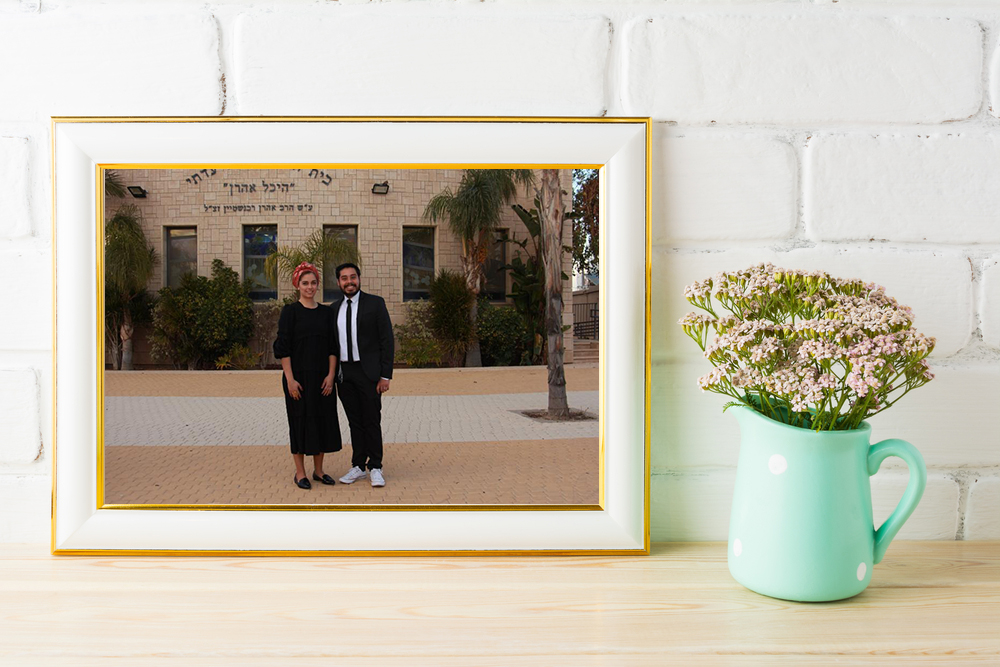 Daniel and Eliana Kitzberg
Daniel and Eliana KitzbergDaniel returned to Colombia to study medicine, simultaneously starting a journey towards Judaism. "I joined conversion studies and began attending the synagogue, but only to the level of a traditional Jew because that was what was available in my area. I didn't know that Judaism was much more beyond, and I thought that this study was enough. During this time, I met Eliana, who also began showing interest in religion."
Eliana, for her part, just wanted to know more about Daniel's world, but over time, she began to become interested in Judaism herself. "The more I learned about Judaism, the more I felt it was right for me too," she says. "I never connected with the Christian values I was raised with, and in school, I felt they were being imposed on me. On the other hand, when I came to the synagogue, I felt that people came there willingly, out of genuine inner connection."
The two married and decided to immigrate to Israel. "It's very hard to be Jewish abroad - there's almost no supportive community or kosher food, and sometimes it's even dangerous to walk down the street. We talked about it a lot, it didn't happen overnight, but eventually, we decided we wanted to raise our children in a Jewish environment. At that time, we had completed a conversion process abroad, but we still behaved traditionally. We didn't know beyond that, and we thought that's how Judaism looked. When we came to Israel, we were surprised to discover a different reality. We had to undergo another conversion process because the conversion in South America doesn't count, and only then did we discover that Jewish life requires much more. It's not just about attending synagogue or observing Shabbat at a basic level; it's an entire way of life that touches almost every aspect of daily life."
And yet you chose to continue...
"Right, but that didn't happen overnight. It was a process we went through over time. We started with new conversion studies, learned much more than we did abroad, progressed step by step, and we continue to this day. The initial decision to go for it was already there, but we didn't leap at once because it's genuinely not possible. So, about seven months ago, we were blessed to undergo a conversion according to Jewish law, and afterwards, we remarried."
How did you come to the community in Be'er Sheva?
"We were told about it when we came to the country, and since we didn't know Hebrew at all, we decided it would be right for us to join a place where Spanish is spoken. But the truth is we discovered much more here. We are doctors by profession, and when we first arrived, we still didn't have eligibility to work in Israel. On the other hand, we couldn't live off the low allowance given by the Ministry of Absorption. During that time, community members stepped in to guide us towards work and help in any way possible. We were also fortunate to meet wonderful people here who are like family. From the beginning, they invited us to Shabbat meals, and the communal spirit is also evident in building a communal sukkah for everyone and in the third meal we share every week together. Additionally, the Torah lessons held at the synagogue enrich us greatly, and the fact they are taught in Spanish makes understanding easier. There's an opportunity to grow religiously here with other people without feeling alone, and knowing everyone is going through similar processes to ours is significant."
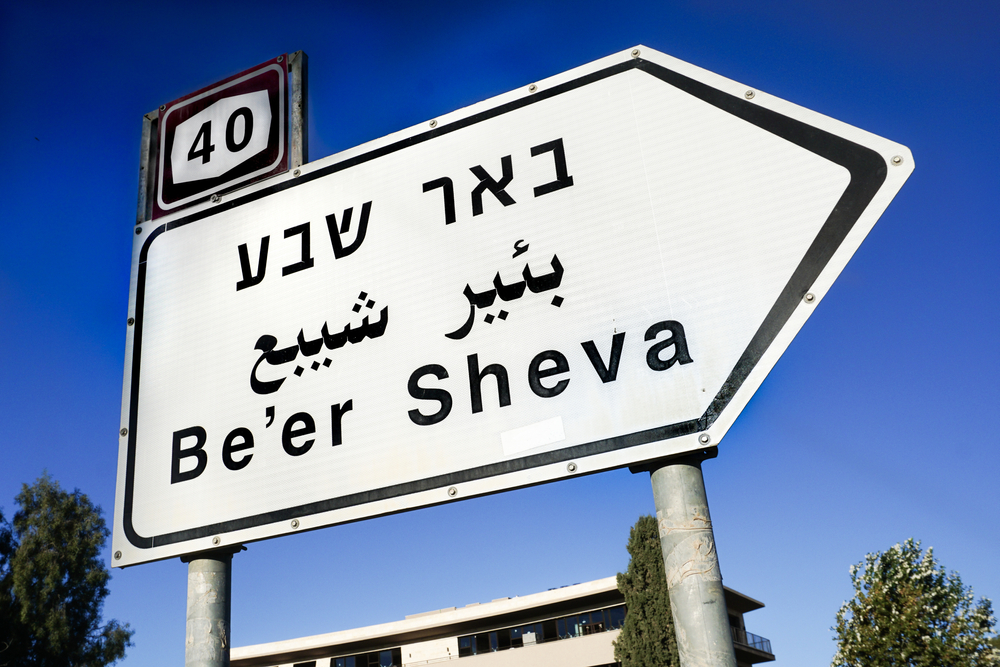 (Photo: shutterstock)
(Photo: shutterstock)In this context, what is your opinion on the conversion law?
"After studying both abroad and in Israel, we can say there's a significant difference between them. It is possible to learn very superficially and think you've undergone a proper conversion, but that's not serious. Judaism isn't just about Shabbat reception at the synagogue; it's much more than that, and a person who connects to the people of Israel needs to know they're taking on a whole world. Opening up the conversion framework will lead to amateurish activities in the field, and it won't be good if people joining our people do so in this manner."
Bride Aged 77, Groom Aged 91
Rabbi Baruch Gelman, the community's current rabbi, briefly describes what Latin American converts go through. "They change language, religion, work, and many arrive in the country in an unstable financial condition," he says. "All this can also lead to tensions at home, and we try to accompany them and assist with all sorts of challenges. Additionally, each person goes through their conversion process differently. Some come with a clear decision that this is what they want, and their mental readiness for change is high, while some, despite their desire to join the people of Israel, find it difficult to accept all the commandments, and they go through ups and downs. The clear thing within all this is that belonging to a supportive community makes it easier to cope. It's not just a place where the same language is spoken, but a whole framework of people who help each other, understanding the process each one goes through."
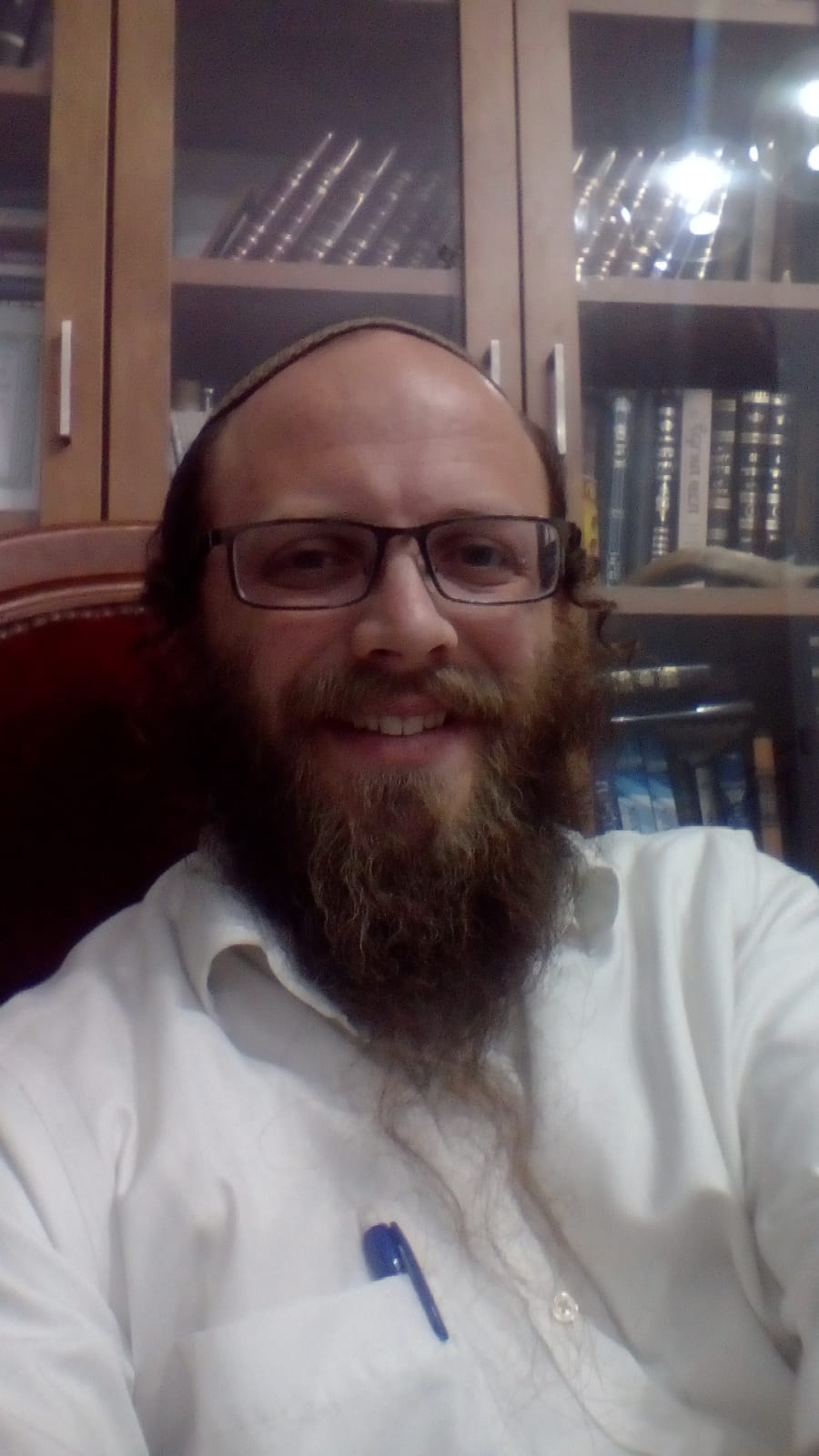 Rabbi Baruch Gelman
Rabbi Baruch GelmanWhat makes South American natives convert specifically?
"Some initially felt something in Christianity wasn't straight, and later heard one class or another via the internet. Some have ancient Jewish traditions since the expulsion from Spain, or records of family names indicating they're descendants of the conversos. This is what moves them to return, and they come to the country with immense dedication, leaving sometimes esteemed jobs, and until they complete conversion in Israel, they have no work permit here. One person told me that abroad his wife was a doctor, and they had a car and an apartment, but here she still hasn't managed to enter the workforce, and the price of a car equals the price of a house there. Another person was a lawyer previously and now works at a factory in Israel, and yet another was an accountant and is now engaged in construction. This transition isn't easy, and it's important to help them through it. Generally, I feel that in Israel converts are beautifully received, and they're appreciated for the brave step they've taken. 'And you shall love the convert' - this should be the approach, and it is expressed in every warm welcome and appreciation towards them. It's important to remember that despite the strong desire, going through conversion isn't easy, and a person who finds a sympathetic ear and warm relations succeeds in going through the process more effectively."
What does the rabbi have to say about the changing conversion law?
"It feels like it's disrespecting everyone who will convert from now on. Everyone will know they've undergone a less serious process and will treat them as 'light convert'. Those who converted before can say they went through a true process towards entering Judaism, but from now on - it will be problematic to say so."
In conclusion, the rabbi describes one of the special moments in the community. "Every couple that converts marries again, and it's a very festive and moving moment. Not long ago, I had the privilege to conduct a wedding for a 77-year-old woman who had dreamt for years to convert and her 91-year-old husband. They lived together for decades, and yet they were very excited to stand together under the chuppah. We celebrated the event in the community synagogue, of course."

